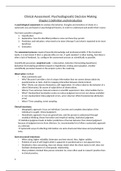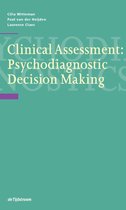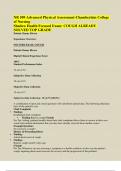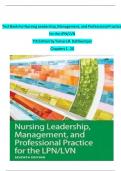Samenvatting
Summary book Clinical Assessment: Psychodiagnostic Decision Making
- Instelling
- Radboud Universiteit Nijmegen (RU)
- Boek
- Clinical Assessment
Summary of the book Clinical Assessment: Psychodiagnostic Decision Making. The corresponding course is Clinical Assessment and Decision Making at the Radboud University, bachelor year 3.
[Meer zien]







